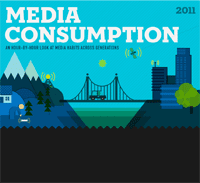8 Common Online Marketing Mistakes
 The promises online marketing seems to offer are many and great: measurable results, laser-beam accuracy in targeting specific demographics, lower costs than television and newspaper advertising. Nevertheless, some marketers who have jumped onto the online marketing bandwagon aren’t seeing the kind of results they had hoped for in their company’s bottom line. What’s the problem? These online marketing firms are probably falling victim to one or more of the most common mistakes in online marketing. In the course of this article, we’ll sketch out 8 of these common online marketing mistakes, with hints on how to avoid them.
The promises online marketing seems to offer are many and great: measurable results, laser-beam accuracy in targeting specific demographics, lower costs than television and newspaper advertising. Nevertheless, some marketers who have jumped onto the online marketing bandwagon aren’t seeing the kind of results they had hoped for in their company’s bottom line. What’s the problem? These online marketing firms are probably falling victim to one or more of the most common mistakes in online marketing. In the course of this article, we’ll sketch out 8 of these common online marketing mistakes, with hints on how to avoid them.
1. Online Marketing Firms Leap Before they Look
By far the most common mistake online marketing firms are making are leaping before they look. That is, marketers are diving into forums such as Facebook, YouTube channels, AdSense, and other forms of online marketing without first forming a cohesive strategy for their online marketing agenda. As a result they end up with disparate, incongruous online marketing that confuses customers about their brand rather than building on that brand.
Online marketing is a completely different world, and it is as big and as important (or it will be soon) as any other media channel. Just as a marketer would never dare to release a series of television spots without a very clear idea of how they would use the spots to shape perception of the brand and tie in to other marketing efforts, they shouldn’t dare to leap into online marketing without a clear, cohesive online marketing strategy.
2. Tricked Into Thinking They’re Too Old to be Smart
A white collar professional with experience in sales and marketing who now owns her own real estate firm recently confessed to me, “I don’t have a PayPal account. I think I missed the age cut-off.” Too many marketers “of a certain age” view are stuck in the view that old dogs can’t learn new tricks, and therefore they must rely upon the young, hip, chic online marketing firms who make lofty promises about campaigns that go viral and engage millions of viewers.
Don’t be intimidated by online marketing, and don’t rely solely upon online marketing experts who pat you on the head and say in a patronizing tone, “Don’t worry your pretty little head over how it works.” Instead, take the time to get educated and deepen your understanding on who’s actually engaging different types of online content, how they’re engaging that content, and what actions they take after they see an online marketing campaign – just as you would with any other marketing genre. Online marketing is a brave new world, but there are plenty of tour books and guides who can teach you the ropes, no matter what your age.
3. Online Marketing Firms Abandon Email Marketing
Facebook, YouTube, and Twitter would very much like marketers to believe that the age of email is over, but this is not true. In crafting an online marketing strategy, don’t ignore the power of email. It is still a major player when it comes to getting consumers to take action.
4. They Prostrate Before the Shrine of Google
Google is powerful, there’s no doubt about it. Putting a company’s website, or alternate domain names related to that website, into the first few slots on Google’s search engine results page is still the best way to get free, qualified website traffic.
However, just getting high marks on Google isn’t enough to convert traffic into sales. That takes good content and clever marketing messages.
5. They Prostrate Before the Shrine of Facebook (or Twitter)
Facebook’s Mark Zuckerberg is the new Big Man on Campus, but just as online marketing firms shouldn’t put all their eggs in the one basket of Google, neither should they put all their eggs in the basket of Facebook, or for that matter Twitter.
Social media is powerful when used correctly. Again, though, without carefully, deliberately linking social media to meaningful marketing calls-to-action and the rest of a marketing campaign, social media is just another online marketing red herring. It is time for marketers to relearn the lesson that their efforts on Google, Facebook, and Twitter only work when combined with other well-honed marketing components.
6. Their Blog’s a Bore
Content, content, content – content is king online, right? Content is where keywords are artfully sprinkled in. Content is what you feed the insatiable, Little Shop of Horrors search engine known as Google. Content is ultimately what brings people to the site.
But does content bring people back to the site? It doesn’t if the blogs and articles are boring and too obviously self-promoting.
Content is a place to impress and intrigue consumers, not a place to jam in as many keyword phrases as possible and tell the same old story with each blog post. “We’re great. We offer these services. Did we mention we’re great? These are the services we offer.”
Good content isn’t mere product promotion, and blogs shouldn’t tell the same story, slightly re-phrased, again and again. Compelling content is educational, fresh, humorous, controversial, confident, and/or a little bit of all of those things. This is the content that online marketing firms should be creating.
7. Online Marketing Firms Forget that Brands Still Matter
Online marketing is still essentially about brand development. Good online marketing firms still evaluate every online campaign against how it will shape the brand. Multiple online marketing channels aimed at slightly different audiences sometimes lead marketers to stray from their brand’s main message and confuse consumers. A confusing brand is a brand that will not profit.
8. They Fail to Reach Connectors
Campaigns go viral not because they reach a lot of people; campaigns go viral because they reach the right people. The online world’s connectors are like the matchmakers of the 21st century. With a grin and a pat on the knee, they wink and say, “You will absolutely LOVE this one.” They aren’t necessarily the people who have the most Facebook friends or Twitter followers. They are people who have influence amongst their friends and a passion about a certain product or online campaign. Campaigns that don’t spur these connectors or influencers into actions are campaigns that should be declared dead on arrival.
Will online marketing live up to its great promises? For some companies, it already is. For other companies, it’s failing abysmally. The problem is not the online world itself, but the marketing strategies (or lack thereof) that marketers are applying to the online medium. Start examining your own online marketing efforts against the eight common mistakes above and make changes accordingly.


